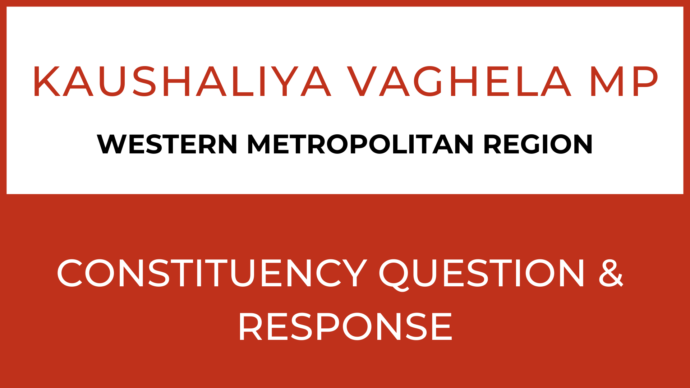Ms VAGHELA (Western Metropolitan): My constituency question is directed to the Honourable Adem Somyurek, the Minister for Local Government and Minister for Small Business. The Essential Services Commission released its first report on rate capping in Victoria in June 2019. The report concluded that the Andrews Labor government has protected ratepayers from huge rate rises. The Essential Services Commission is an independent regulator that promotes the long-term interests of Victorian consumers with respect to the price, quality and reliability of essential services. Introduced in 2016–17, the Andrews Labor government’s Fair Go Rates cap has succeeded in slowing the annual growth of council rates and charges. City councils in my electorate of Western Metropolitan Region have remained cash positive and are able to meet their financial obligations while the ratepayers get a fair go and remain protected. My question to the minister is: can the minister give me an update on the savings and benefits for ratepayers in the councils in my electorate of Western Metropolitan Region?
RESPONSE :
Mr SOMYUREK (South Eastern Metropolitan—Minister for Local Government, Minister for Small Business) (14 November 2019):
Under the Fair Go Rates System, the total amount a council can increase its rates by each year is capped in line with inflation. In the ten years prior to the introduction of rate capping, council rates were increasing on average by 6 per cent each year. This was an unsustainable burden on ratepayers. If rates had continued to rise at these levels, ratepayers would be paying hundreds of dollars more than they are under the rate cap.
The Essential Services Commission report into the outcomes of rate capping 2016-17 to 2017-18 found that the financial health of the local government sector remains strong under rate capping. Since the introduction of rate capping, the sector as a whole has had a positive adjusted underlying result each year, increasing working capital and falling indebtedness. In the 2015-16 financial year, councils in the Western Metropolitan region collectively held cash and financial assets worth $539 million and owed debt of $167 million. For the 2019-20 financial year those same councils are collectively budgeting to hold over $1 billion in cash and financial assets while owing debts of $174 million.
The continued financial strength of these councils has aided them in addressing their challenges, including rapid population growth. While individual ratepayers may experience increases above or below the rate cap applicable for their council, the report found that 86.5 per cent of rates notices in 2017-18 increased by less than the rate cap. Investment in asset renewal has remained stable during and after the introduction of rate capping. Over the next four years the councils in the Western Metropolitan region are planning to collectively invest over $2 billion in capital works. Fact sheets for each council are available on the Essential Services Commission’s website and I encourage the Member to review the overview for the councils in her electorate.
